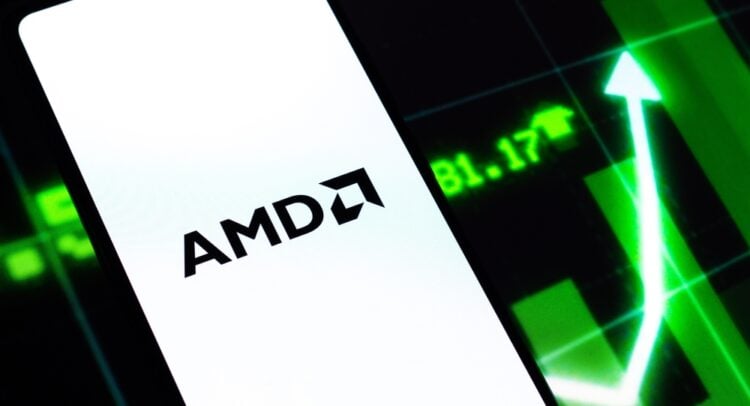Key Takeaways
- Intel on Monday said Japanese investment giant SoftBank had agreed to buy $2 billion of the chipmaker’s stock, boosting hope on Wall Street that the Trump administration and allies will throw the beleaguered chipmaker a lifeline.
- Tech analyst Patrick Moorhead said the SoftBank deal may pave the way for more deals with potential foundry customers, and could signal SoftBank’s own chip ambitions.
- UBS analysts said in a note Tuesday that Intel stock could reach $40—up from $25 on Tuesday—if the White House can entice companies to contract with Intel’s foundries.
Intel (INTC) shares jumped on Tuesday as investors responded to signals the Trump administration may throw the company’s troubled foundry business a lifeline.
Intel on Monday evening announced Japan’s SoftBank agreed to invest $2 billion in the chipmaker, making it Intel’s fifth-largest shareholder, according to FactSet data. In addition, Commerce Secretary Howard Lutnick on Tuesday told CNBC that Intel should give the U.S. an equity stake in exchange for the CHIPS Act grant committed by the Biden administration.
The updates come after The Wall Street Journal last week reported that the federal government was mulling taking a 10% stake in Intel as part of broader efforts to shore up domestic chip manufacturing and give America a leg up in the global artificial intelligence arms race.
Intel, “for better or worse, remains the only US-headquartered prospect for leading edge semiconductor chips and processes,” wrote Bernstein analysts in a note last week.
Shares of Intel closed 7% higher on Tuesday, making the stock the biggest gainer in the S&P 500. The stock has risen 26% since the start of the year, after losing nearly 60% of its value in 2024 as the once-storied chipmaker’s problems mounted.
What Do Investments Mean for Intel Foundry?
Patrick Moorhead, founder and chief analyst at Moor Insights & Strategy, on Tuesday morning said he expected SoftBank’s announcement to pave the way for the federal government’s investment and other deals.
“I also think there’s going to be other investors,” Moorhead told Yahoo! Finance on Tuesday. Those could include chip designers like Nvidia (NVDA), Broadcom (AVGO) and AMD (AMD), or hyperscalers like Microsoft (MSFT), Amazon (AMZN), and Alphabet (GOOG), which are all developing their own chips.
The investment could also be a sign of SoftBank’s chip ambitions. The most likely rationale for the investment is that “SoftBank companies are intending to build its rumored Arm CPU tiles and AI XPUs and Ampere chips related to Stargate,” Moorhead told Investopedia. Contracting with Intel to make those products could count toward Masayoshi Son’s commitment to invest $100 billion in the U.S., he added.
Foundry Customers Key to Stock Upside?
UBS analysts in a note on Tuesday said that while they maintain their “neutral” rating and $25 price target on Intel’s stock, they can imagine a path for Intel shares to reach $40—“but a lot would have to happen.” The stock closed Tuesday at just over $25.
To reach that price, Intel will likely need to land a few major foundry customers, which they say could include Nvidia, Broadcom, and Apple (AAPL). “An upside case could potentially come to fruition if the US Government pushes these companies to engage more immediately with Intel on foundry services,” the analysts wrote.
Bernstein analysts agreed that the government could be instrumental in securing foundry customers. “One could imagine the US government attempting to help with this, either directly through force (or at least heavy encouragement), or indirectly through tariff policy or other regulation,” the analysts wrote.
But Can Intel Make the Chips Trump Wants?
According to Bernstein, the White House’s investment and efforts to nudge chip designers toward Intel foundries may not be enough to secure a self-sufficient American AI chip industry. Intel will also need to regain the technological edge that once made it the most valuable chipmaker in the world.
“Without a solid process roadmap,” a U.S. investment in Intel “would be economically equivalent to simply setting 10s of billions of dollars on fire,” the analysts wrote. “And there is unfortunately less that the US government can do directly to help with this.”
Earlier this year, Taiwan Semiconductor Manufacturing Co. (TSM), the world’s largest contract chipmaker, was rumored to be discussing a joint venture with Intel through which it would provide expertise and training. TSMC denied the report at the time, but “we wonder if we might see some of that news flow resurrected,” said Bernstein.
Source link
